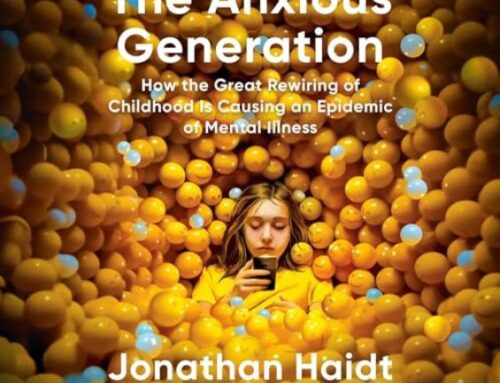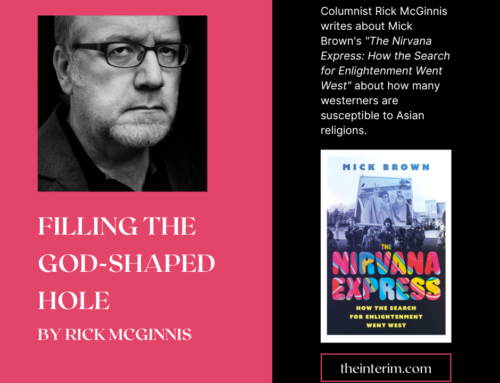At the end of January of this year, writer Yann Martel mailed his last book to Stephen Harper. For over three and a half years, the prize-winning author of The Life of Pi has sent a biweekly letter to the Prime Minister, enclosed with a book that he hoped our country’s elected leader would read, in the hope that it would – as he said in the letter accompanying the first book – provoke an “unwitting self-examination,” and “shudders of worry and denial,” and perhaps ultimately make the prime minister “existentially thicker.”
Martel’s reading list for Prime Minister Harper was eclectic, and would have comprised a few well-packed bookshelves in the home of a well-read individual in any of our cities. Novels dominated, with a smattering of plays and poetry, memoirs, essays, and even a graphic novel or two – what an older person, or one unaccustomed to reading the book sections of quality newspapers, would call a comic book.
Even with the project formally at an end with the gift of the hundredth book, it’s hard to figure out exactly what Martel intended to accomplish. Cynically, you could call it a publicity stunt and a make-work scheme for the writer, who has already published a collection of the first fifty-five letters sent to Harper in 2009. (It’s worth noting that, while there were only fifty-five in the English-Canadian edition, there were sixty in the version published in Quebec. A creative thinker such as Martel must surely recognize a winking metaphor, bound to prompt an aside about our two resentful solitudes, and the terminally unbalanced machinery of federalism. I’m making this aside as my own gift to the author.)
His goal, tellingly, wasn’t overtly political; in the 2007 Globe and Mail article where Martel publicly announced his project, he speculated that the Prime Minister’s job “fills his entire consideration and froths his sense of busied importance to the very brim,” with the result that he “sounds and governs like one who cares little for the arts.” Martel said that he hoped to speak to Stephen Harper’s “moments of stillness,” and that he would send him books “known to expand stillness.”
The Prime Minister ended up with a stack of books that included Sir Gawain and the Green Knight, Shakespeare’s Julius Caesar, Carol Shields’ biography of Jane Austen, A Clockwork Orange, a collection of Paul McCartney’s lyrics, and an Agatha Christie mystery. Politics inevitably arose, though, with the gift of Michael Ignatieff’s The Lesser Evil: Political Ethics in an Age of Terror in January of 2009, where Martel admiringly noted Ignatieff’s “impressive c.v.” and “formidable intellect,” and imagined the possibility that “he may even take your job.” Just two years, but it seems so long ago.
It’s tempting to make fun of Martel’s epistolary project, which came closest to self-parody early last year, in a breathless paragraph describing a letter the author received from U.S. president Barack Obama. (“The President of the United States wrote to me – to me! For sure I’m going to have the note framed. If there was a way of tattooing it on my back, I would.”) But there’s nothing Martel attempted that we on the pro-life side wouldn’t love to accomplish, if we still imagined that Stephen Harper had any intention of intentionally renewing the debate on abortion.
You could assemble a small group of recent, explicitly pro-life novels – titles like Brian Gail’s Fatherless, Daniel Gura’s God’s Avenger, Michael O’Malley’s Prolifers and Lois Amari’s The Human Farm. It isn’t a list as long or critically esteemed as the one Martel sent to the Prime Minister, and I can’t speak to its overall quality as they were either self-published or printed by small presses, and I don’t actually know anyone who’s read them; be assured that authoring a novel with an overtly pro-life message is probably the quickest way to begin a peerless collection of rejection letters.
It might be more considerate of our busy Prime Minister to queue up a list of films on Zip.ca, as pro-life messages have been more resonant in movies than literature lately. There’s Alejandro Gomez Monteverde’s Bella, a hit on the church basement screening circuit a few years ago, and actual box office sensations like Juno and Knocked Up, which almost seemed to surprise themselves by embracing the premise that keeping a baby was a more sympathetic decision for their protagonists to make than killing one.
Harper’s Ziplist would have to include the 1965 film Alfie, which pivots around a scene, still gut-wrenching today, where Michael Caine’s character is confronted with the bloody consequences of his careless treatment of women.
Just as it’s nearly impossible to make abortion either a sympathetic decision or a satisfying conclusion, denying the transcendent value of life is a poor prescription for great, abiding art. Nihilism might have a morbid appeal for depressives, or indulged or neglected young people with an acute sense of their perceived oppression, but both common sense and healthy aesthetics – not to mention wise politics – will reject it out of hand. In the end, it doesn’t matter what Stephen Harper reads as much as what our children and our neighbours read, and the certainty that great art will embrace the value of life and reject despair.




